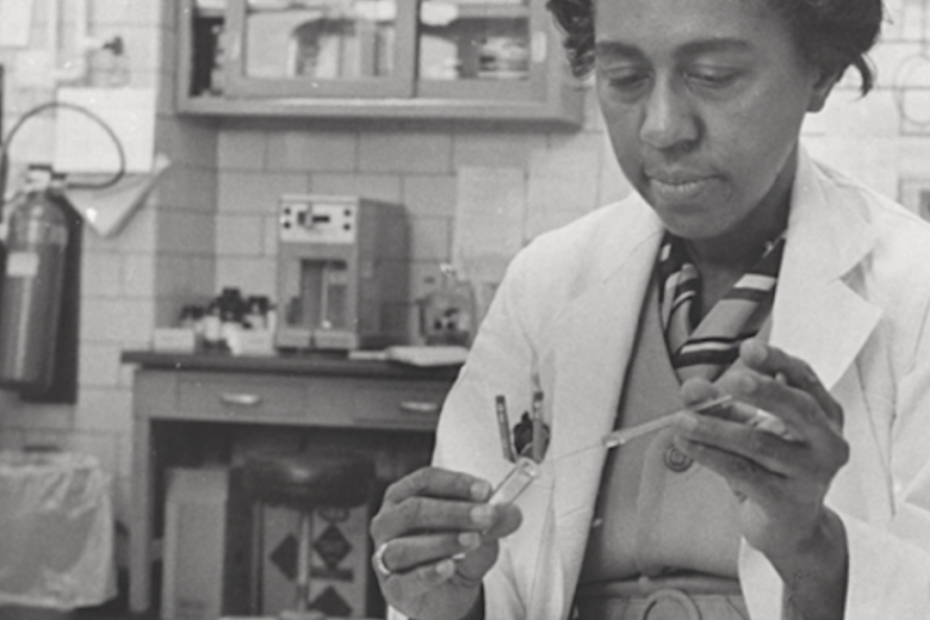In March we celebrate Women’s History Month, and this year we would like to highlight a few pioneers in the field of biochemistry, health, and nutrition.
Early in the twentieth century there was a strong increase in the number of human nutrition studies conducted, which is linked to the entry of women into academia and research. These scientists, visionary researchers, and leaders in nutrition policy founded a legacy for other nutrition scientists (men and women) to follow in their honor. Some of these leading ladies include:
Marie Maynard Daly
Marie (pictured above) was an American born biochemist, and the first African American to receive a Ph.D. from Columbia University, as well as the first African American woman in the United States to earn a Ph.D. in chemistry. She helped to discover the link between high cholesterol and clogged arteries, essential for our understanding of heart disease.
Dame Harriette Chick
During the First World War, Harriette focused on studying soldiers’ diets to prevent vitamin C and thiamine deficiency, and ultimately scurvy and beriberi. At the end of the war, Harriette traveled to Vienna to share her knowledge on vitamins, in a country where there was a serious public health problem. Harriette was then director of the nutrition division at the Lister Institute and continued to study vitamin deficiency until close to her death, at the age of 101.
Agnes Fay Morgan
After completing her PhD, in biochemistry, Agnes taught nutrition at Berkeley. Her research allowed us to gain a better understanding about the effect of micronutrients on health, such as the role of calcium, phosphorus and vitamin D in bone health, and Vitamin B5 in skin and hair pigmentation.
Icie Hoobler
A biochemist, she prioritized maternal care and showed the impact of nutrition on infant development, establishing a correlation between access to prenatal care and the subsequent growth and health status of children.
Because of these powerful women in history, a foundation and understanding of nutrition and its effects on health were discovered. Modern nutritional research, such as various new diets that contain more plant-based meals, focusing on sustainability, personalized nutrition for each individual, functional foods to help manage disease, and digestive health benefits, are key objectives of studies for our current era.
Content Submitted by Jessica Roy, MS, RD, LDN and Melanie Crane, Nutrition Intern
